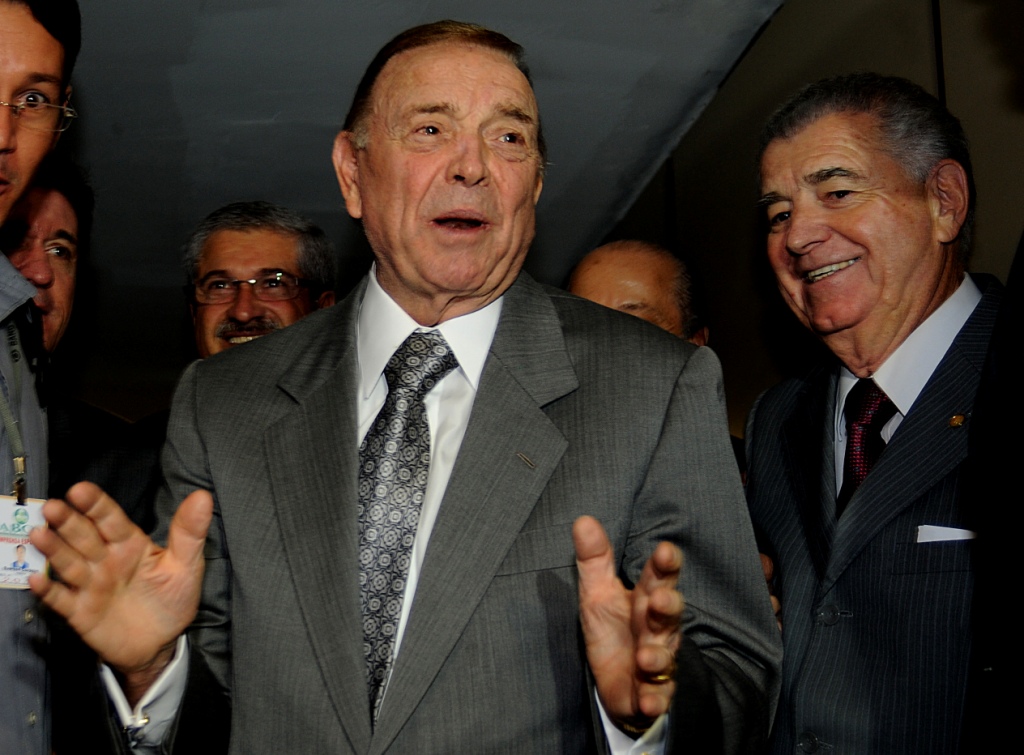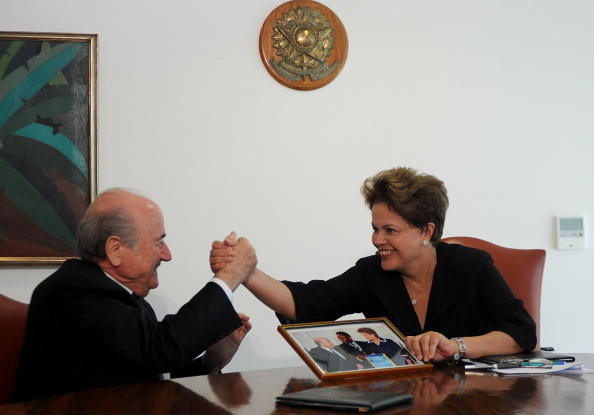By David Gold
March 28 – Rainforests will come under the microscope today with Brazil due to vote on World Cup law once again.
The move follows the reaching of an agreement between the Brazilian Government and its opposition in Congress.
The opposition has been seeking a compromise over the Forest Code, a piece of legislation dictating how much of the Brazilian rainforests should be preserved.
Environmentalists are concerned the code will lead to accelerated deforestation and the opposition is hoping for concessions on this issue before passing the World Cup law.
Now, following agreement to hold a vote on the code sometime during April, the World Cup law can go before Congress once again.
If the bill is successful in Congress, it will be put before the Senate prior to being passed to President Dilma Rousseff (pictured right with FIFA President Sepp Blatter) to sign off.
The wrangling over the law is centred on FIFA’s requirement for Brazil to ease restrictions on advertising and the selling of alcohol in stadiums during the World Cup in 2014.
The issue has exasperated FIFA secretary general Jérôme Valcke in recent months as Brazil has stalled and failed to agree on the details of the law.
Earlier this week Sports Minister Aldo Rebelo insisted that although the law was unlikely to be ratified until April it would happen.
Meanwhile, the FIFA World Cup Organising Committee today convened for the first time in Zurich since the departure of Ricardo Teixeira from the Brazilian football scene.
Teixeira quit as President of the Brazilian Football Confederation (CBF) and chief of Brazil 2014 earlier this month, he has also relinquished his seat on the FIFA Executive Committee.

He has been succeeded by José Maria Marin (pictured centre) as head of the CBF and Organising Committee, and by Marco Polo Del Nero at FIFA.
“After the reconfirmation received from President Dilma Rousseff and the Brazilian Government on the fulfilment of all guarantees, we are confident that, despite the many tasks still to be completed by all of us, Brazil will stage an exceptional FIFA World Cup in 2014,” said Blatter, who opened the meeting.
The FIFA Executive Committee is now becoming engaged in the monitoring process for the World Cup, and most of its members were present at today’s meeting along with Russia 2018 chief executive Alexey Sorokin and Danny Jordaan, head of the 2010 World Cup in South Africa, both acting as special advisors.
Once the World Cup law is passed, the main challenge for Brazil will be to upgrade its transport infrastructure – in particular air capacity – to cope with expected demand in 2014.
Contact the writer of this story at zib.l1745072536labto1745072536ofdlr1745072536owedi1745072536sni@d1745072536log.d1745072536ivad1745072536
Related stories
March 2012: World Cup law will soon be passed, insists Brazilian Sports Minister
March 2012: Brazil 2014 World Cup law faces further stumbling blocks
March 2012: Blatter’s meeting with Brazilian President heals Valcke comments rift
March 2012: Brazil and FIFA make vital progress with 2014 World Cup Law
March 2012: Brazil threatens to cut ties with FIFA’s Valcke after latest comments cause fury

